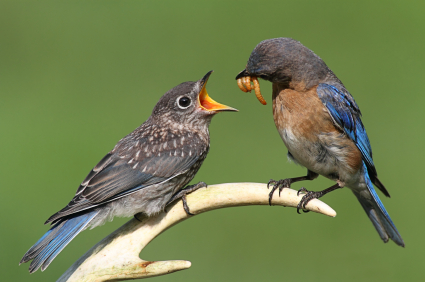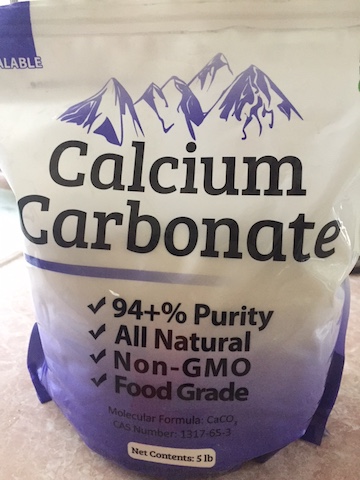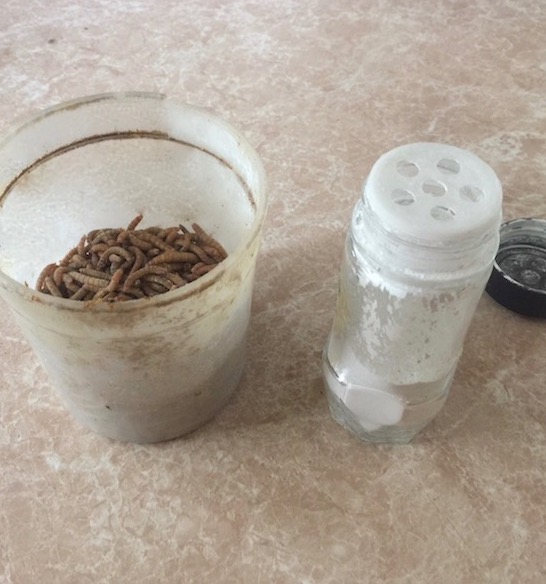Easiest Way to Add Calcium to Meal Worms

Sure you can save your egg shells, then you can sterilize the egg shells, then you can crush the egg shells and them to bird food, suet or mealworms. Or you can save a ton of time and shake-shake calcium powder right into meal worms just prior to feeding.
Some birds will actually eat the shells straight-up when sprinkled on a deck rail or on the ground below bird feeders. And some adult birds are known to eat their hatchlings’ shells as a means of keeping the nest clean and gaining calcium.
Why add calcium to meal worms?
So you’re trying/or have finally attracted bluebirds to you yard, Maybe you’re lucky enough have them stick around all year? Feeding lots of mealworms is calcium-depleting because they’re so high in protein. Similar to a sugar overdose for kids, too many worms can be too much of a good thing for bluebirds and others. We’re guilty on this charge!
Babies need strong bones to form properly, it’s critical for first flight. Lack of calcium (via parents feeding a disproportionate amount worms vs. natural food like insects or berries) can contribute to deformities. In breeding females, lack of calcium may cause her eggs to form with thin or weak shells. This makes passing the soft eggs difficult and exhausting- sometimes even fatal. Called egg bonding, it can also happen in nature to birds who’ve never eaten from mealworm feeders.
What’s the easiest way to add calcium?
A simple “shake-shake” from a spice jar does it! Calcium carbonate is a powder supplement readily available at most health food stores and online. Fairly inexpensive, one pound will likely last for a few years. Save one of your spice bottles and clean thoroughly.
Fill the jar with powder and store the bag for future use. Two shakes into the worms and toss gently to lightly coat/dust the worms. That’s all there is to ensuring your bluebirds are getting enough calcium!

